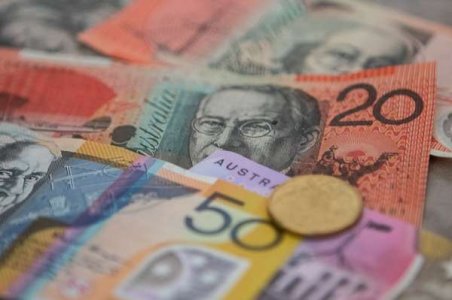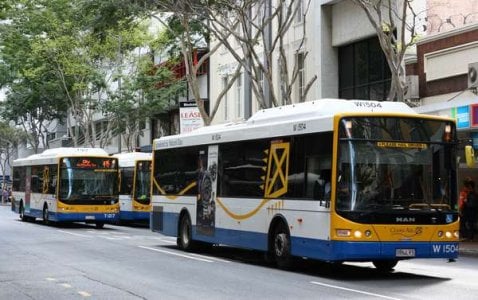Millions of Aussies to get more cost-of-living relief
- Replies 45
In a welcome move for many Australians, the Queensland government has announced further cost-of-living relief measures.
This comes from a smaller deficit in the state's mid-year budget, which is set to provide some financial respite to Queenslanders grappling with rising living costs.
Treasurer Cameron Dick announced a forecasted net operating deficit of $138 million for 2023/24, marking a significant $2.04 billion improvement on the deficit projected in the budget.
Coal royalties, expected to generate $9.4 billion in revenue, are seen to be behind the smaller budget gap. There is a substantial increase of $3.8 billion from initial projections in industry revenue, according to the state treasury.

'The strength of our balance sheet enables us to deliver more cost-of-living relief for Queenslanders,' Dick said.
'The number one priority of the government is to make sure we deliver as much cost-of-living relief to Queensland families and businesses as we can afford.'
Starting January 1, public transport fees will be frozen for a year, saving commuters significant amounts.
For instance, a commuter travelling from the Gold Coast to Brisbane could save over $210 annually on public transport costs, according to government estimates.
But the relief doesn't stop there. From July 1, 2024, registration fees for motor vehicles will also be frozen, sparing motorists from the usual annual fee increase.
To put this into perspective, last year, the total cost of registering a four-cylinder vehicle went up $20 from $773 to $793.

Additional cost-of-living relief measures include free kindergarten for families from 2024 and a doubling of the First Home Owner Grant to $30,000 until mid-2025.
Furthermore, all Queensland households received $550 electricity rebates this year, with vulnerable families receiving $700.
'These changes are not as big as the electricity bill rate rebates, but every dollar you don't have to spend at a time like this is very important,' Dick added.
While Queenslanders can look forward to these support measures, the same cannot be said for all Australians battling rising costs.
The federal budget is on track for a much smaller deficit of $1.1 billion this year, an improvement of $12.8 billion compared to the May budget.
Despite no additional cost-of-living relief added in the update, Federal Treasurer Jim Chalmers noted that the government's targeted cost-of-living relief measures were still being rolled out.
This includes targeted energy bill subsidies, cheaper medicines, cheaper child care, and increased Commonwealth Rent Assistance.

What are your thoughts on these cost-of-living relief measures? Do you think they go far enough? For those in other areas of Australia, do you have similar measures? Share your thoughts with us in the comments below.
This comes from a smaller deficit in the state's mid-year budget, which is set to provide some financial respite to Queenslanders grappling with rising living costs.
Treasurer Cameron Dick announced a forecasted net operating deficit of $138 million for 2023/24, marking a significant $2.04 billion improvement on the deficit projected in the budget.
Coal royalties, expected to generate $9.4 billion in revenue, are seen to be behind the smaller budget gap. There is a substantial increase of $3.8 billion from initial projections in industry revenue, according to the state treasury.

A small deficit in the state budget is expected to benefit many Queenslanders in the long run. Image Credit: Pixabay
'The strength of our balance sheet enables us to deliver more cost-of-living relief for Queenslanders,' Dick said.
'The number one priority of the government is to make sure we deliver as much cost-of-living relief to Queensland families and businesses as we can afford.'
Starting January 1, public transport fees will be frozen for a year, saving commuters significant amounts.
For instance, a commuter travelling from the Gold Coast to Brisbane could save over $210 annually on public transport costs, according to government estimates.
But the relief doesn't stop there. From July 1, 2024, registration fees for motor vehicles will also be frozen, sparing motorists from the usual annual fee increase.
To put this into perspective, last year, the total cost of registering a four-cylinder vehicle went up $20 from $773 to $793.

Queenslanders will save hundreds with a year-long public transport fee freeze, according to state estimates. Image Credit: Pixabay
Additional cost-of-living relief measures include free kindergarten for families from 2024 and a doubling of the First Home Owner Grant to $30,000 until mid-2025.
Furthermore, all Queensland households received $550 electricity rebates this year, with vulnerable families receiving $700.
'These changes are not as big as the electricity bill rate rebates, but every dollar you don't have to spend at a time like this is very important,' Dick added.
While Queenslanders can look forward to these support measures, the same cannot be said for all Australians battling rising costs.
The federal budget is on track for a much smaller deficit of $1.1 billion this year, an improvement of $12.8 billion compared to the May budget.
Despite no additional cost-of-living relief added in the update, Federal Treasurer Jim Chalmers noted that the government's targeted cost-of-living relief measures were still being rolled out.
This includes targeted energy bill subsidies, cheaper medicines, cheaper child care, and increased Commonwealth Rent Assistance.
Key Takeaways
- The Queensland government will implement further cost-of-living relief next year due to a smaller deficit in the 2023-24 budget.
- Public transport and motor vehicle registration fees will be frozen for 12 months from January 1 and from July 1, 2024, respectively.
- The budget revealed a small net operating deficit of $138 million for 2023/24, a $2.04 billion improvement on the forecasted deficit.
- Other cost-of-living relief measures include free kindergarten from 2024, doubling the First Home Owner Grant to $30,000 until mid-2025 and a $550 electricity rebate for all Queensland households.
Last edited:







